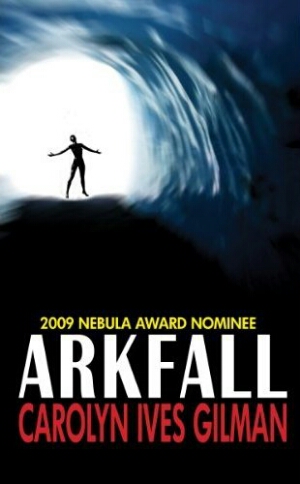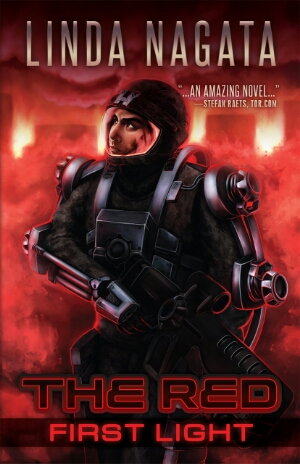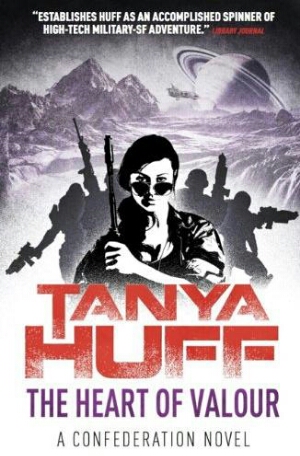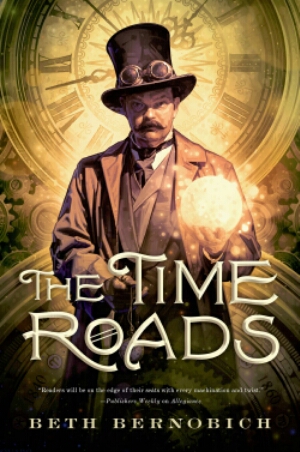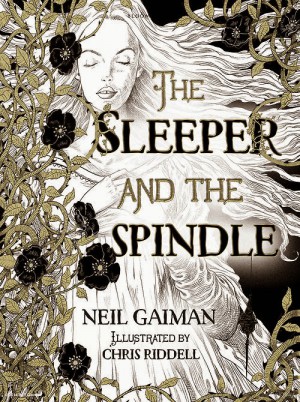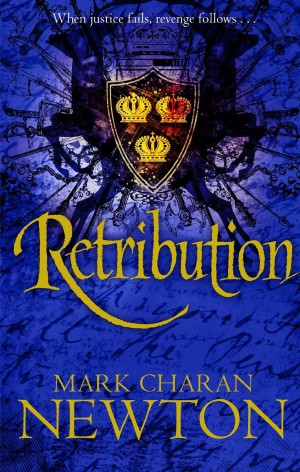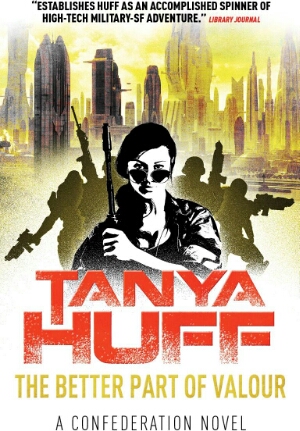Arkfall by Carolyn Ives Gilman
Humans live deep within an apparently lifeless planet covered by massive ice sheets. Having to survive in confined spaces has bred a unique culture where deference and non-confrontation make co-existence possible.
Osaji’s opportunities are limited by the need to care for her aging grandmother. But all that is about to change as circumstances push her toward a journey like no other.
~~~~~
Arkfall is one of those pieces of fiction that seems to be reaching for a Golden Age sensibility – both of science fiction, with its sense of discovery and the new, and of exploration, with its rather more immediate sense of discovery. Gilman’s story certainly draws very strongly on both sensibilities, but is also a more modern work than that might imply.
There are two plotlines to Arkfall; one is the mutual adjustment to life on Ben of Osaji, our protagonist, who is a native to the planet but struggling with the collective-good model of society and the stifling impact of familial responsibilities, and Scrappin’ Jack, a spacer merc who strikes the reader as something of a caricature of an American pioneer. This is a problem for the work; Osaji seems to be an attempt to represent Native American cultures and traditions, but without any real depth or thought put into that, as a foil for Scrappin’ Jack, something reinforced by Gilman’s reference to Lewis and Clark in the introduction to this edition of the novella. That approach flattens out and completely fictionalises Native American culture insofar as it is at all present in the first place, which is only minimally at best; unfortunate because this is actually quite an interesting plotline as we watch these two intensely different characters negotiate the necessities of living together and interacting, and see how the compromises between them evolve.
The second plotline of Arkfall, and perhaps its subsidiary plotline, is actually the better and more emotionally impactful, and that is watching Osaji care for her grandmother, Mato, as she sinks further into dementia. This is presented beautifully, sympathetically, and honestly; while some of the most visceral scenes that can ensue are left out of the text, the increasing loss of self brought on by dementia, the disconnection from the world, the pain of watching someone fade away and stop being themselves, are all conveyed expertly and with a real sensitivity to the way that this can bring about an awful lot of pain for all involved. Gilman manages to not sentimentalise dementia nor to make it into some strange, alien, other thing, instead striking a difficult balance between the two that represents a more honest reality.
Had Arkfall been about Mato and Osaji, or even Mato, Osaji and Scrappin’ Jack, it would have been a wonderful, painful story, the kind of short piece that sticks with one; as it is, that unfortunately gets lost in the very problematic and somewhat messy wider story of cultural negotiations that has serious problems.
The Red: First Light by Linda Nagata
There Needs To Be A War Going On Somewhere
Lieutenant James Shelley commands a high-tech squad of soldiers in a rural district within the African Sahel. They hunt insurgents each night on a harrowing patrol, guided by three simple goals: protect civilians, kill the enemy, and stay alive—because in a for-profit war manufactured by the defense industry there can be no cause worth dying for. To keep his soldiers safe, Shelley uses every high-tech asset available to him—but his best weapon is a flawless sense of imminent danger…as if God is with him, whispering warnings in his ear. (Hazard Notice: contains military grade profanity.)
~~~~~
The Red: First Light is military science fiction that sits somewhere between post-9/11 and post-Eisenhower antiwar politics; clear as to who to target – the Military-Industrial Complex, here described as defence contractors or DCs – but mistaking the reality of modern war, wherein contractors increasingly do the work on the ground, not the government-run military forces. Not that Nagata doesn’t acknowledge private security forces and independent military contractors, who are given a significant role in especially the non-“formal war” conflicts in the novel, but that they are sidelined away from things like anti-insurgency operations, something anyone familiar with the way we are currently at war in the Middle East will recognise as strange. It’s also a book whose politics are worn on its sleeve; Shelley is very outspoken and blunt in his anti-MIC rants which, while not being simply voice of the author, are clearly rewarded by Nagata.
It doesn’t help that the military itself does not reflect the real world military or the direction in which that is going; The Red: First Light has a military full of middle-class people from middle class backgrounds, on the whole, with good educations and alternative prospects. Unfortunately, this is not what the military of Western nations look like any more, increasingly drawing on the working classes and those with no chance for good education or good jobs, offering employment where otherwise there might be none; this failure to engage with the exploitative nature of the military-industrial complex makes it seem like the problem is only in the way it creates wars in foreign countries, not in the global wealth politics involved, a curious if telling omission.
The Red: First Light is not, however, simply a political manifesto against the financially-required wars or the eternal economic need for conflict. It is also a military science fiction novel in its own right, and this is where Nagata works some real narrative magic. The action inherent to a military science fiction novel can often feel forced, and the suspense unreal, but when our protagonist loses his legs early on it is clear the stakes are actually real, and that risk exists for all the characters; this early establishment of the stakes works very well when Nagata relies on it later on to question how real the stakes are. The action is the standard fast-paced violent material, but with a moral element not always found in milSF; The Red: First Light does deal with the issues of the morality of war and of following orders in battle while also maintaining the tension necessary to this kind of novel.
Character is a weaker area, as again is perhaps common to the genre. Shelley is the rebel who fits into the system, fighting against it while also reliant on it; the rest of the cast are really just ciphers against whose backdrop Shelley acts on the world, and who exist only for their emotional impact on Shelley. Nagata even manages, towards the end of the novel, to fundamentally fridge a character, who serves little narrative purpose before that except to be an emotional tie for Shelley; The Red: First Light really doesn’t ascribe much interest or humanity to any of the rest of its cast, and that has a sadly flattening on its emotional beats. The reality of the novel is that its first-person viewpoint just doesn’t care about other people, and while that could be used interestingly, it results instead in an awful lot of telling us about character rather than showing it – the cast being either indistinguishable or, in the case of a few characters like Ransom, distinct only because of their broad brushstrokes of personality.
The Red: First Light has one other plot element so far not mentioned, and that is the Red itself, the strange unknown force in the electronic Cloud that seems to be keeping Shelley alive. The problem here is again one of patchiness; not so much that its attention comes and goes – which allows for interesting dynamics in the story, including Shelley’s reliance on it and others’ faith in him based on it – but the attention that characters pay to it. Sometimes they are paranoid about its impact, other times blasé about its existence, and sometimes acting and thinking as if it didn’t exist; it feels almost as if Nagata sometimes just could not be bothered to factor it in to her characters’ reactions, and didn’t do a consistency-edit on that at any point.
In the end, The Red: First Light is a very exciting and fastpaced military science fiction novel, but Nagata disappoints on the character front and the attempts to engage with serious real-world issues of politics fall singularly flat.
The Heart of Valour by Tanya Huff
Her latest mission sees newly promoted Gunnery Sergeant Torin Kerr escorting a recuperating major and his doctor to Crucible, the Marine Corps training planet. But when the troops are suddenly attacked by their own drones, Kerr is caught in a desperate fight to protect the major, his doctor and a platoon of untried recruits.
~~~~~
The third of Huff’s Valour books feels, in many ways, like a return to the first, with a little of the paranoia of the second thrown in for good measure. The Heart of Valour once again sees Torin Kerr given a group of soldiers she doesn’t know for a specific mission; in this case it is theoretically the not-so-simple task of escorting a major through his paces as part of his rehabilitative programme on a training run for recruits, which becomes horribly real – and horribly live-fire.
If this conjures up images of Valour’s Choice, in which Kerr is sent on a diplomatic mission which turns into a rerun of Rourke’s Drift, that is a reminiscence actually mentioned in The Heart of Valour; while there is a sort of intrigue subplot trying to peek out from among the action, it’s one whose content is so obvious, and whose resolution so clear from the start, that it is nearly pointless and fails to add much. In fact, that particular subplot simply seems to be a way to have Craig Ryder hanging about, rather than constructive of itself, or perhaps building towards something in the next book; in either case it feels clumsily bolted on and slows down the main, core military science fiction story.
That core of The Heart of Valour is, as noted above, rather similar to the first book in the series, but excellently carried off; the way Huff treats her Marine recruits, the majority of characters in the novel, is sympathetic and interesting, similar to the way she has treated Marines in prior books but also touching on their lack of experience and their heroisation of Marines with actual service. Huff also introduces some interesting new wrinkles, including some backstory to the di’Takyan; this introduces a subplot related to the way integration of different cultures affects unit cohesion and function, and is interestingly addressed, especially in the way discussion continues throughout the book on Marine problems versus species problems.
Mind you, the specific choice of cultural difference is a rather problematic one. The Heart of Valour sees a character taken out of action by the use of illegal hormone treatments to avoid what is essentially a cross between menopause and gender-change; the resolution to this plot is not sympathetic to this character, and avoids touching on discussion of why they might wish to avoid this change, instead presenting it as idiocy to not simply give in and go through with it. As a genderqueer reader, what Huff is doing here strikes very close to trans issues, especially issues of trans service in the emergency services and the army; and her conclusion that attempting to avoid betrayal by one’s own body is a foolish, dangerous decision is one that we see reproduced often enough as it is, and whose counterpoint – that one’s body should reflect one’s self, not vice versa – is far too rarely argued.
Heart of Valour, then, continues the fun, readable and enjoyable adventures of Torin Kerr, but also continues Huff’s track record of some particularly problematic writing in this series…
The Sleeper and the Spindle by Neil Gaiman illus Chris Riddell
A thrillingly reimagined fairy tale from the truly magical combination of author Neil Gaiman and illustrator Chris Riddell – weaving together a sort-of Snow White and an almost Sleeping Beauty with a thread of dark magic, which will hold readers spellbound from start to finish.
On the eve of her wedding, a young queen sets out to rescue a princess from an enchantment. She casts aside her fine wedding clothes, takes her chain mail and her sword and follows her brave dwarf retainers into the tunnels under the mountain towards the sleeping kingdom. This queen will decide her own future – and the princess who needs rescuing is not quite what she seems. Twisting together the familiar and the new, this perfectly delicious, captivating and darkly funny tale shows its creators at the peak of their talents.
Lavishly produced, packed with glorious Chris Riddell illustrations enhanced with metallic ink, this is a spectacular and magical gift.
~~~~~
The Sleeper and the Spindle is a strange mash up of Sleeping Beauty and Snow White, sold largely on a single image by Chris Riddell of Snow Whie, as an armoured knight, kissing Sleeping Beauty.
That’s not unreasonable; Riddell’s art is absolutely essential to the experience of this book, his characteristic, strong, clear illustrations telling the story themselves as well as illuminating the text. The integration of text and art is excellent, not going down the route of comic books but nor simply describing the text; The Sleeper and the Spindle is as much an art project as anything else, and splash pages such as the famous kiss emphasise that. The high production values – a beautiful translucent dust jacket, metallic inks providing detail highlights that really make the pages pop.
Of course, The Sleeper and the Spindle is as much Gaiman’s work as Riddell’s. The story itself is an interesting subversion of both the Snow White story and Sleeping Beauty; Snow White is, here, our protagonist, a queen engaged to marry the prince who woke her. Her kingdom is threatened by an encroaching plague of sleep, centred on the palace of Sleeping Beauty in the neighbouring kingdom, so with the help of some of the dwarves she met as a princess she infiltrates the country, expecting to have immunity to magical sleep from past experience. The Sleeper and the Spindle follows the small party through the country, and Gaiman raises the creepiness of the story throughout, making it eerie and unsettling even as the familiar elements of the children’s version of the fairy tale crop up, such as the whole kingdom having fallen into sleep except the spiders, the thorn-encrusted castle, and more.
It’s the climax of the story that really makes The Sleeper and the Spindle interesting; subverting not only what we know about the fairy tale from Disney and countless other modern retellings, it subverts expectations Gaiman and Riddell have themselves set up, turning the standard model of the fairytale on its head with some serious style and panache. It’s a wonderful twist and, while clear in hindsight, on first reading it’s actually very well concealed.
This is only a slim volume, but it is a beautiful one; Riddell and Gaiman have collaborated to, in The Sleeper and the Spindle, breathe a whole new kind of life into an old fairy tale. Lovely.
Requires Hate Requires Speaking Out
Some months back, I provided space on my blog for Benjanun Sridungkaew to talk about her novella Scale-Bright (that post is here). That was, in fact, after an apparent? possible? blacklisting campaign against her due to her actions towards other authors, actions I was unaware of and largely carried out under a pseudonym, namely: Requires Hate.
The actions taken by Requires Hate – the hate, fear and pain spread under that and other monikers – aren’t mine to talk about. The suppression of the conversations around the genre, around issues of diversity, around issues of inclusion, around how to act within fandom? Those things are not mine to talk about. Nor are the actions of her supporters. None of these things were directed at me, though they have been directed at friends of mine, at people I like, at people whose voices – voices, note, attacking colonialism, assaulting racism and sexism head on, and fighting for diversity in concrete ways – I value.
It’s not my place to say how we move forward from here; I’m white and Western, so my privilege in this field – although not as great as that of some commenting and trying to shut others down for speaking from positions of privilege – is great. My job here is to facilitate. It’s to get voices out there that otherwise are being unheard. It is to stand behind people – some friends, some acquaintances, some I do not know – and, when they raise their voices, to help those voices to be heard.
Voices like that of Rochita Loenen-Ruiz, a very good friend:
Because of my position and because I had publicly supported Tricia Sullivan, I was accused of being complicit in racism and transphobia.
Regardless of this accusation, I continue to stand by what I have said. I cannot condemn a work based on a manuscript that has since been rewritten.
I am aware that things have been said about me. I am not sure what has been said and I do not know with how many this conflict has been shared. I had, at first, made a decision not to talk about this conflict as I valued Alex Dally MacFarlane’s work.
Tori Truslow who is one of the Nine Worlds organizers is Alex’s partner and it was clear that she was aware of what had taken place between Alex and me. I did hope that she would keep an objective position on this matter. It will seem illogical to many, but the position Alex and Tori occupied in UK fandom made me anxious and fearful when I went to Nine Worlds.
(…)
In all our communications, I had always supported RH in her desire to build a career as a writer. I respected her descision to maintain secrecy and her choice to take on a writing pseudonym. I do not know what RH’s real name is. I also do not know Benjanun Sriduangkaew’s real identity. I do know that Benjanun was a persona that RH donned in order to achieve her desire of being a published writer.
(…)
I had heard that Benjanun had been outed in public by Nick Mamatas, but Nick told me that Benjanun was spreading the rumor that I was the one who had outed her. I told Nick that this was an untrue accusation. I thanked him for taking the time to ask me about this and tried to think of what I could do.I will admit that I was quite disheartened. Among the messages I received was one that accused me of sabotaging and destroying Southeast Asian writers. It is an accusation that has no ground in truth. My work has always been directed towards creating more visibility for writers coming from the margins. That these kinds of lies were being fed to the vulnerable is a deed that I consider unconscionable.
(…)
I’ve heard that Requires Hate a.k.a. Benjanun Sriduangkaew has tendered two apologies and that she has apologized to those who she has harmed. More than two weeks have passed since then, but I have yet to receive an apology for the untruths she spread about me and her attempt to destroy my reputation.
(…)
To say that all RH did was to utter words is a complete denial of what we are as writers. Words have power, and words wielded in hatred and violence are just has harmful as violence dealt out with fists.It is clear to me that RH has made use of her words to create schisms and divisions. She created an atmosphere of distrust and fear. By her actions, she has harmed many who chose to put their trust in her.
(Standing Up And Speaking Truth; emphasis mine)
I believe Rochita, who is now being gaslighted.
Voices like that of Athena Andreadis, another active campaigner for diverse voices in the field and one with a story of her own:
I recommended that she own up to the RH identity to head off any unpleasantness, including people feeling betrayed if they were blindsided about her two very different personae. It was also clear from our second exchange that BS was not her real name but yet another handle. BS/RH didn’t like my advice and, realizing I wouldn’t become one of her acolytes, eventually stopped interacting with me.
(…)
Then I started getting odd reactions from an increasing number of people: whispers, insults, cold shoulders, abrupt unfriendings. Some of this came from writers whom I had invited to my anthology and paid pro rates, such as Alex Dally MacFarlane (a staunch RH lieutenant, who now had some clout as the editor of a Prime Books reprint anthology and a Tor columnist). Readercon, the only gathering my health allows me to attend without strain, notified me in 2013 they had “received complaints” about my panel proposal. MacFarlane, who had originally clamored to join my panel, attempted to disrupt it. My request for a reading slot for my brand-new anthology was denied and in 2014 I was not invited to Readercon.As more people whom I knew befriended the BS persona, I told Nick Mamatas, who had become a buddy of sorts. A few months ago, I also told three others I deemed vulnerable, all in strict confidence. One of them was enticed into breaking my confidence. She informed me that BS “was upset” and “asked what she’d ever done to you that you’d say that about her” (i.e. that she was RH). The signs were clear that BS/RH had targeted me for isolation and expulsion from the SFF community: having proved unherdable, I was a potentially dangerous loose end.
(…)
When I told the story to Nick Mamatas, he mentioned that BS/RH had indeed sent him a note about me “spreading unfounded rumors” and “having it in for her”; I suspect she sent similar notes to all her editors and publishers as a pre-emptive strike. Nick also let me know that bad people can be good writers, whereas BS/RH’s adversaries were jealous “has-beens”. He didn’t answer when I asked if he deemed me disposable as well. Soon afterwards, he publicly stated that BS was RH, arguing that this would stop her predation while sparing her career. Many of the people who knew but did not see fit to tell me I had been targeted for slaughter have been beneficiaries of my personal and/or professional support.
(Tinker, Tailor, Soldier, Wrecker)
I believe Athena, who is being attacked and ostracised.
Voices like that of Rachel Manija Brown:
I only exchanged about five or six comments with Winterfox, all during the span of a few days. That was the last direct contact I had with her, and I never posted about her. But she commented on me, on blogs and on Twitter, for the next three years.
She said the same sort of things about me that she said about a lot of people – that I was racist, homophobic, sexist, misogynistic, a rape apologist, stupid, despicable, and worthless. All this was expressed with intense rage and vicious profanity. She didn’t say that she wished I could be shot in the head or have acid thrown on me, or make any other threat of violence. But I saw her say those things about other people whom she also accused of being homophobic, sexist, racist, and so forth. I was clearly categorized in her mind as the sort of person who ought to be mutilated and killed.
(…)
Her harassment of me followed a pattern. Every time I posted on LGBTQ issues and sometimes when I reviewed a book with queer content, she would launch a wave of harassment. Sometimes she’d quote from my post and abuse or mock me, and sometimes her abuse would be on an unrelated topic. But whenever I mentioned queer issues, the harassment would start. Her intent was clear: to intimidate me out of speaking on queer-related topics and rights. That is an issue of great importance to me. I do fundraising for LGBTQ causes. Once I and two other women ran an online auction that raised $50,000 for marriage equality. That is the sort of activism that Requires Hate spent three years trying to suppress.There were times when I didn’t post on LGBTQ issues, or posted only under lock, because I didn’t feel up to facing yet another onslaught of verbal abuse. So Requires Hate succeeded, to some small extent: she got me to shut up about queer rights a couple times. This is the person whose bullying is defended as being in the service of the greater good. Whose greater good did that serve?
(…)
Requires Hate/Benjanun Sriduangkaew recently put up a pair of apologies, one for each persona. She has never apologized to me, though she has had four years to do so. However, I don’t need or want an apology. We have all seen how words can be faked. But actions, whatever their motivation, are real.
(Comment on a post of Laura J. Mixon’s)
I believe Rachel.
Voices like Chelsea Gaither, RH’s harassment of whom is “in the past”, but really isn’t:
Thank you for calling me an awful human being because I wrote that rape recovery makes people stronger, and that I find that recovery to be a sublimely beautiful thing. Thank you for believing that means I glorify rape and abuse. Thank you for making assumptions. Thank you for taking your own cause and turning it into something that’s all about hatred and not about dialogue, because that sure as shit stinks will make humanity better. Yes, I am sure it will. Answering hate with hate, murder with murder, and violence with violence has always solved all of the worlds problems.
Thank you for deciding that I don’t deserve to have a voice.
Thank you for showing me that you really are an inconsiderate, un-self-aware, remorseless piece of shit.
Fuck you for making me talk about this.
(Cerulean sins–chapter 47. Triggers. Consider yourself warned.; I reiterate the trigger warning. Followup more recently here: Fine. FINE. Thoughts on the Requires Only That You Hate drama)
I believe Chelsea.
I believe Jordan and J. M. Frey and AXD and and and and…
And I believe the other victims who have laid their stories out to Laura J. Mixon, who have been harassed and bullied… and the majority of whom are not the straight white Western men RH and her allies claim to punch up against, but are women (60%) or people of colour (37%) (Source); people who RH is at best punching across to, and her allies are largely punching down at.
I don’t want my (white, Western) thoughts to get in the way of what I’m trying to do here, which is give a little bit of a boost, however small, to those targeted by Requires Hate. But what I did want to do is provide them with the same platform I provided to her. What you do with what you learned above is your own affair. If you can, speak out. If you can’t – because clearly speaking out is a risk! – then I can understand that, especially for those with less spoons, less social capital, more prominence, or any combination of these things.
Look after yourselves. If you can, look after each other. As for me, I’ll do my best to look out for and after all of you. If you need me, you know where to find me…
-D out.
(Posted backdated for reasons of median-term curation; for the record, this post was put up at 00:19 GMT, 07/11/2014)
Retribution by Mark Charan Newton
WHEN JUSTICE FAILS, REVENGE FOLLOWS… Having just solved a difficult case in his home city of Tryum, Sun Chamber Officer Lucan Drakenfeld and his associate Leana are ordered to journey to the exotic city of Kuvash in Koton, where a revered priest has gone missing. When they arrive, they discover the priest has already been found – or at least parts of him have.
But investigating the unusual death isn’t a priority for the legislature of Kuvash; there’s a kingdom to run, a census to create and a dictatorial Queen to placate. Soon Drakenfeld finds that he is suddenly in charge of an investigation in a strange city, whose customs and politics are as complex as they are dangerous.
Kuvash is a city of contradictions; wealth and poverty exist uneasily side-by-side and behind the rich façades of gilded streets and buildings, all levels of depravity and decadence are practised.
When several more bodies are discovered mutilated and dumped in a public place, Drakenfeld realizes there’s a killer at work who seems to delight in torture and pain. With no motive, no leads and no suspects, he feels like he’s running out of options. And in a city where nothing is as it seems, seeking the truth is likely to get him killed…
~~~~~
Newton’s Drakenfeld works, his second secondary-world fantasy series, are heavily influenced by thinking about the Classical world, thinking he has done much of in public on his blog. As a Classicist, it appealed, and having found Drakenfeld an interesting, if at times frustratingly wrong, read, I inevitably picked up Retribution when it came out…
Retribution sees Drakenfeld taking up a new case in a new country in the Vispasian Royal Union. This time, it’s serial killer fair, in a rather Criminal Minds kind of way; brutal, sadistic killings, with no seeming connection, meaning Lucan and Leana have to put together the pieces to find the links and the motives. As in any TV procedural, each death provides more clues, and more clues mean getting closer to the killer; and throw in a coroner who really is ripped straight out of NCIS, and you have something of a cliche on the readers’ hands, albeit one altered by the setting. Indeed, the pressure from the queen, whose friends it is who are being murdered, takes the place of the traditional authority figure (sheriff, mayor), and Sulma Tan the role of the local cop who helps out and proves extremely useful. Newton doesn’t do anything original with this plot, replicated on the page beats we have seen time and again on screen, to the point of boredom and predictability, right down to the kind of motive involved.
The subplot swirling around the politics of Koton is more interesting. Retribution is very heavy-handed in its critique of the idea of social exclusion zones for the poor, and of the impossibility of forcing modernisation on a country; that heavy-handedness goes alongside the plodding statements about the dictatorial rule of the queen of Koton, and her circumvention of the democracy required by the union. However, where it gets more interesting is in the discussion of foreign relations; in a union of nations, what happens when one is destabilised by the prosecution of its king, and has an appetite for expansion? The build up to war, so reminiscent of 20th century history, is convincingly portrayed, one in which every side is suspicious of all others, paranoid about their own security, and taking measures to ensure their safety that actually inflame the tensions.
Retribution also rather falls down on its characterisation. Our two main characters get little character development – except for a single block infodump from Leana revealing her past, in a manner so heavy-handed and simple as to be actively annoying, especially as it doesn’t appear to actually change her relationship with Lucan; and the secondary characters are cliches lifted from other media. Sulma Tan, as mentioned above, is the local cop who helps the team and is very enthusiastic about police work; Nambu is the standard heart-of-gold princess discovering how the rest of society looks by being exposed to it; and Queen Dokuz Sorghatan is every benevolent tyrant you have ever read about combined with every pushy political officer demanding results from the police you’ve ever seen on screen.
What saves the book is good writing. Retribution may be unoriginal, but it is a good retelling of an old set of tropes; Newton’s first person narrative does breathe a certain new life into the hoary old cliches, with a style that is gripping and well-paced, while refusing to dwell on elements that don’t contribute to the story. At times, it feels a little stripped down, and at others (repetition of descriptions, or of Lucan’s reactions to discoveries and observations) a little flabby, but the simple approach taken really does draw the reader in and on despite all the problems.
Retribution isn’t up to the standard of Drakenfeld, and I hope Newton’s next venture into Vispasia takes Lucan and Leana out of the realm of detective show cliches, but it is still a fun and enjoyable book, if rather mindlessly so.
The Better Part of Valour by Tanya Huff
When Staff Sergeant Torin Kerr makes the mistake of speaking her mind to a superior officer, she finds herself tagged for a special mission for the interplanetary Confederation to act as protector to a scientific exploratory team assigned to investigate an enormous derelict spaceship. Along with her crew and her charges, Kerr soon finds herself in the midst of danger and faced with a mystery that takes all her courage and ingenuity to solve. This sequel to Valor’s Choice, featuring a gutsy, fast-thinking female space-marine protagonist, establishes veteran fantasy author Huff as an accomplished spinner of high-tech military-sf adventure.
~~~~~
Valour’s Choice is one of those military science fiction novels that defies much of the standard understanding of the subgenre, especially the conservatism of it; The Better Part of Valour sees Huff following many of those themes through…
Once again, Kerr is sent on a mission of vital importance with too little information and under a misleading brief from General Morris. Given the way Valour’s Choice ends, this is perhaps a little surprising; that Kerr still has her post as Staff Sergeant after her insubordination is rather unexpected, and that she is the go-to Marine for dangerous missions is, while earned, unexpected. On the other hand, Huff makes it work; her portrayal of the military relations around the different ranks and between them, and between the services at different levels, shows the way she sees the military working with a sense of humour as well as a certain degree of functional disfunctionality.
That, of course, is more subplot than plot; the plot here is one gamers will recommend from any number of space-based science fiction shooters, and that Warhammer 40,000 players will recognise as the standard encounter with the Tyrannids: The Better Part of Valour sees Kerr leading a group of specialist Marines assembled from various regular units into an unidentified alien ship in order to analyse it. Unsurprisingly, what early on seems completely routine rapidly takes a turn for the more violent, but also the quite weird; Huff creates a sense of the strange and uncanny about the story and the ship even while the blunt humour, sexuality, and fast, almost breezy style keep the sense of a military science fiction that just wants to get the job done in place.
As usual, character really makes this; The Better Part of Valour sees Kerr joined by a completely new cast, and it is worth reading for the different characters and interactions we see in this sequel. Huff has great control over her characters, with each having different voices but similar, not across species alone but also across roles – such as the universality of Marine grunts, and the di’Takyan sex obsession. The interests, ideals and thought processes of each character are unique but all are also distinctly human; while slightly strange in that most of these characters are human, it makes this an intensely relatable book.
Once again, we don’t approach the Confederation novels for deep, meaningful meditation on the human condition, but Huff does deliver enjoyable, and interesting, military science fiction with both humour and excellent characters, and The Better Part of Valour builds on the strengths of Valour’s Choice to be a better novel than it.

